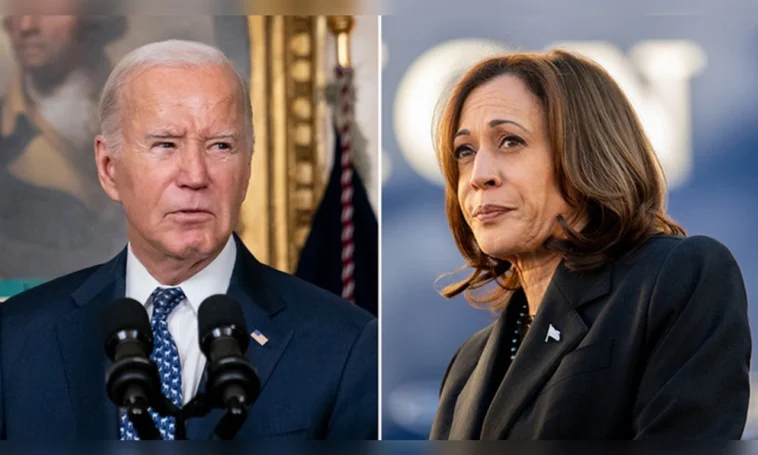This comes at a time when doubts within their party about Biden’s cognitive abilities are growing, fueled by the release of Special Counsel Robert Hur’s report on the president’s handling of classified documents.
“I am ready to serve. There’s no question about that,” adding that everyone who observes Harris’ work “walks away fully aware of my capacity to lead.”
While Harris emphasized her preparedness to take on a more significant role, the backdrop of the interview was the Hur report’s description of Biden’s memory as having “significant limitations.” Despite the report recommending no charges against Biden, citing his sympathetic nature as an elderly man with a poor memory, it triggered criticism from Republicans.
However, notably, Democrats have also begun voicing, or at least admitting, greater concern surrounding Biden’s age and its potential impact on his chances of winning re-election.
James Carville, former President Bill Clinton’s lead strategist, raised questions about the White House’s confidence in Biden, pointing to his refusal to do a Super Bowl Sunday interview.
Carville remarked that the decision not to seize the opportunity for a substantial interview on a day with the largest television audience could signal a lack of confidence from either the staff or Biden himself.
Paul Begala, another former Clinton strategist, went further, describing Hur’s indictment of Biden’s memory and the subsequent response as “terrible for Democrats.”
Even as a Biden supporter, Begala acknowledged the severity of the situation, stating that “anybody with a functioning brain knows that.” These expressions of concern from seasoned political strategists within the Democratic Party underscore the gravity of the issue.
Hillary Clinton, former Secretary of State and the 2016 Democratic presidential nominee, had already admitted, ahead of the Hur report’s release, that Biden’s age was “a legitimate issue.” Her acknowledgment of this concern adds weight to the growing unease within the party regarding Biden’s ability to lead effectively.
Vice President Harris’s declaration of readiness to serve is strategically timed, attempting to reassure both the public and the party about the continuity of effective leadership within the administration. As concerns within the Democratic Party gain visibility, the administration faces the challenge of managing perceptions to ensure that the president’s capabilities remain a focal point.
The evolving narrative around Biden’s cognitive fitness adds layer to the already complex landscape of U.S. politics. With the 2024 presidential election on the horizon, discussions about leadership qualities, age, and mental acuity are likely to play a prominent role in shaping public opinion and influencing political dynamics within both major political parties.
The admission from Hillary Clinton, a seasoned political figure, underscores the complexity of the issue. Age and cognitive fitness have become salient factors in discussions about political leadership, especially with Biden being one of the oldest presidents in U.S. history. The delicate balance between respecting a leader’s experience and addressing legitimate concerns about their cognitive abilities adds nuance to the political discourse.
As concerns about Biden’s cognitive fitness persist, the administration will need to navigate these challenges effectively. Transparency and open communication about the president’s health and mental acuity may become essential components of maintaining public trust. Striking the right balance between reassurance and addressing legitimate concerns will be a delicate task for the Biden-Harris administration.




One Comment
Leave a ReplyOne Ping
Pingback:Kamala Harris praises 'nonpartisan poll worker,' which immediately backfires with X community note - Hard Knock News
Join the Community and Be a Part of the Conversation
You must be logged in or registered to post a comment.